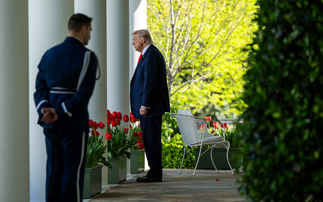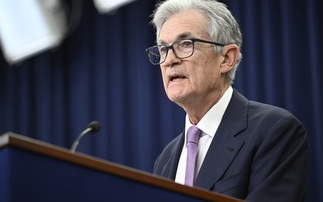In the last of a special three-part Big Question, fund managers give their views on what Donald Trump's presidency may mean for markets and the global economy.
Martin Emery, portfolio strategist - systematic global marco team at GMO
Policy uncertainty
US equities has become an expensive market that is ignoring fundamentals and focusing much more on shorter-term sentiment. The concern here is not so much the attention on sentiment, rather the type of news and information that is the point of focus.
Clearly, a key driver here is the prospect of Trump's pro-corporate policies and their impact on corporate profits.
But it is far from clear that this projection has been confirmed by other more data-driven sentiment signals such as earnings momentum. The current earnings season will be an important guide for markets and analysts.
However, while the few earnings announcements so far have surprised on the upside, these are mostly banks which have benefited strongly from Trump-induced volatility.
The clear risk is that the sentiment could (and we think is likely to) change direction quite quickly. The perceived benefits of the Trump policies have been priced in yet they are still largely unknown, which makes the prospects of a market disappointment so much higher, no matter what policies are formulated.
Matt Freund, co-CIO and head of fixed income strategies at Calamos Investments
Caution pays
Although we believe that 2017 is setting up to be a better year for the U.S. economy, our outlook for the equity market is more cautious. Investors' high hopes of the Trump administration's ability to quickly ramp up US growth and corporate profits may well have pushed the markets ahead of themselves.
History has shown that the transformation of election promises into actual policies is challenging and will happen in fits and starts. Add in concerns over the strengthening US dollar and possible trade wars and uncertainty and volatility are sure to follow.
On the US bond front, while rates may drift higher over the first few months of the year as inflation pressures build, we believe fears of protracted long-term rate jumps may be overdone.
Longer-term rates are unlikely to bottom until the next recession, which we see as an unlikely scenario for 2017.
Given these factors and the strength of the post-election market rallies, we would not be surprised to see a pause or pullback as investors assess the opening months of the new administration.
John Vail, chief global strategist at Nikko Asset Management
Avoiding Schadenfreude
Given the largest cathartic change in the US Presidency in the past 50 years, are risk markets safe in their optimism? Firstly, the US equity market has rallied primarily on fundamentals, especially the lower corporate tax rate's boost to earnings.
Secondly, lower overall taxes and corporate deregulation should spur economic growth, spreading outward from the US; thus boosting global equities and hurting global bonds.
Many had hoped that Trump would have toned down his iconoclastic thoughts by now, but several of such have instead become tangible, while others have become murky.
Asian and Mexican markets are especially worried, but unless there is a major upheaval with China, which it too is desperate to avoid, global risk markets should remain firm, as although the US stock market seems overvalued, it is not when assuming corporate tax cuts.
Indeed, history tells us that bearish investors should not let Schadenfreude or political fear overrule the fundamentals.
Richard Stammers, chief investment strategist at European Wealth
Inheriting the good times
So what will be the impact of a Trump presidency? So far, it seems to us that the expectancy is for Trump to have a big impact on the economy and the markets. Really? What about the other way around? The markets and economy impacting on Trump could be another result.
Remember, when President Obama came to power, he picked up things almost at their worst. The tail end of a global financial crisis, banks on their knees, and markets reeling from the storm.
Trump, however, is inheriting the ‘Good Times'; Wall Street is at historical highs, the US economy is growing - not very fast - but it is growing.
So the big question is will he influence things from here? Or will events influence him? Our bet is it will be the latter. Some people may think they are bigger than the markets, but the reality of this could be very different.













